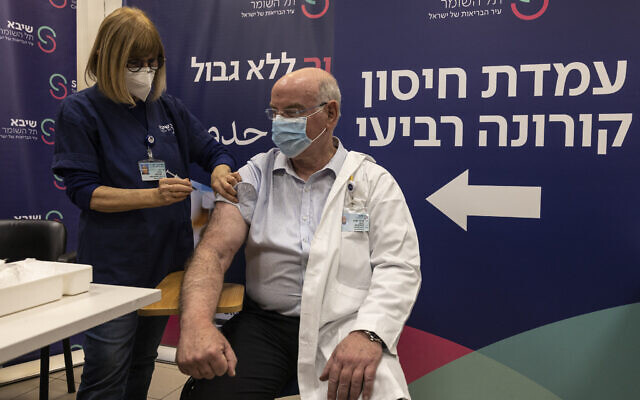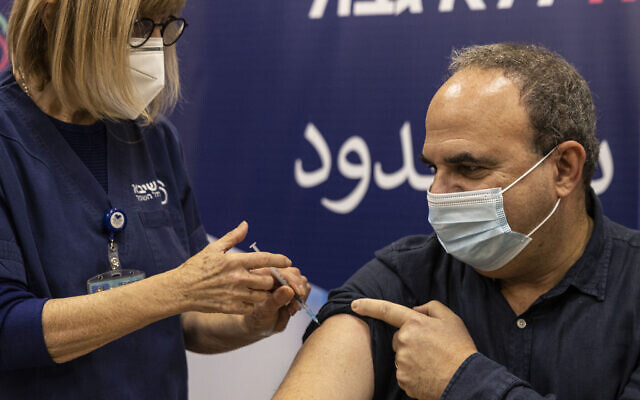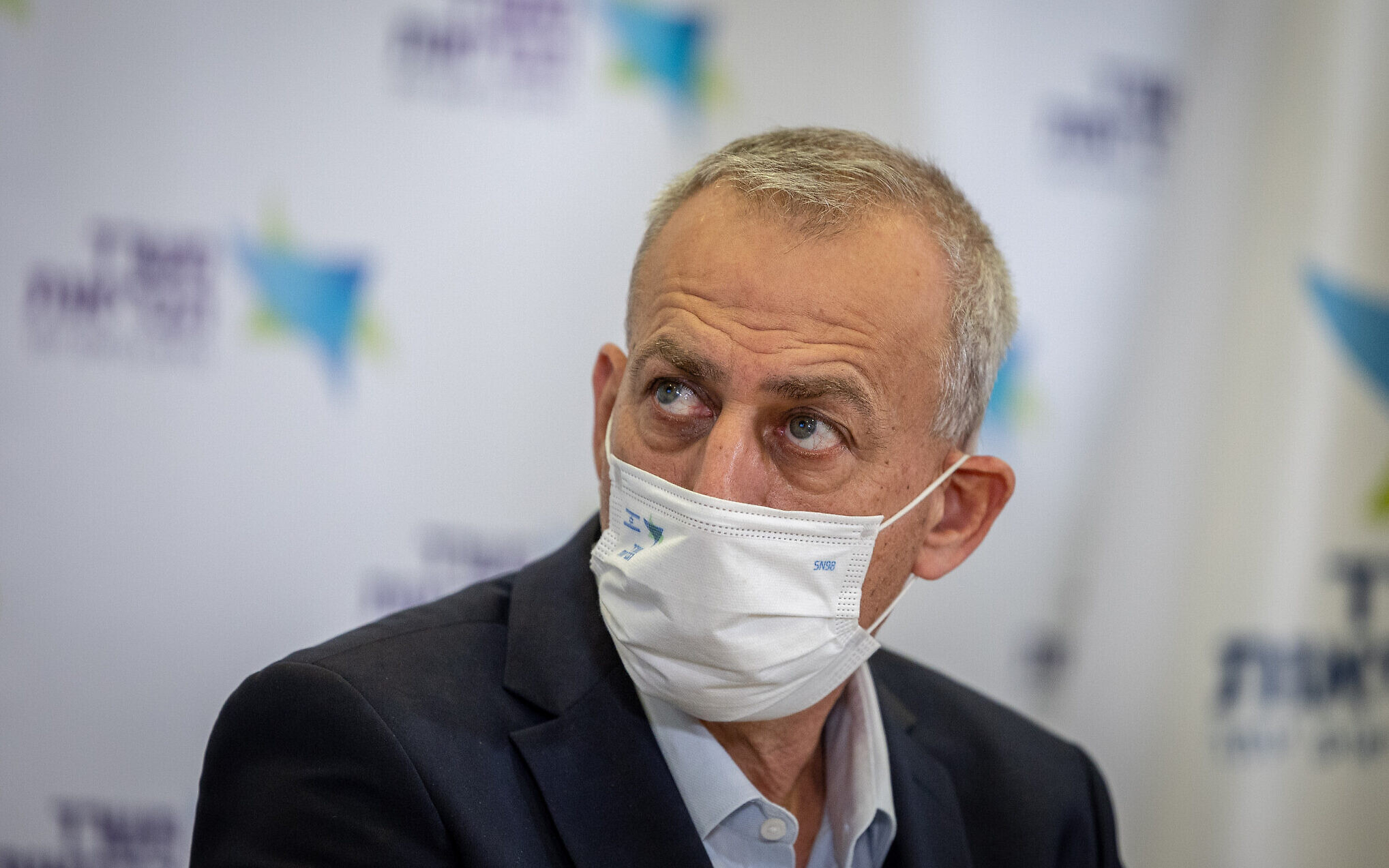‘I did this with a full, full heart,’ says Prof. Jacob Lavee of Sheba hospital, which is conducting a landmark study to establish necessity of a fourth dose to combat the virus

An Israeli heart surgeon apparently became the first healthy person in the world to receive a medically sanctioned fourth COVID-19 vaccine dose on Monday, as Sheba Medical Center launched a landmark study to test the efficacy of the additional shot.
“I did this with a full, full heart for two reasons — first, to protect myself,” Prof. Jacob (Jay) Lavee told Israeli media. “And no less important, my desire to avoid transmitting the disease to our patients.”
Lavee was the first of some 150 health workers at the hospital outside Tel Aviv participating in the study to get the vaccine.
“I am definitely the first in Israel,” he said but noted that some immuno-compromised people had already received a fourth shot in some countries and conceded it was possible that others have illegally obtained additional vaccines.
The health workers who received the fourth dose had also been among the first people to receive the third dose, and had a lower level of antibodies than their coworkers. They will receive the Pfizer/BioNTech vaccine, which is the inoculation used in Israel.
Lavee stressed the importance of medical workers forging the path.

“I think there is a great importance that our medical team not be a vector for the disease and therefore the fourth booster is important,” said Lavee, who heads the heart transplant unit. “Do not fear the vaccine. It’s effective, it’s for the benefit of our future. Go get vaccinated.”
Lavee said he did not experience any immediate side effects after the shot, and reiterated that studies conducted around the world, in Israel, and at Sheba had repeatedly shown that the vaccines were safe.
Sheba’s Prof. Gili Regev-Yochay, a lead researcher in the experiment, said the start of the process was “an exciting moment.”
“This study will test the effect of the fourth vaccine dose on the level of antibodies, on preventing contagion, and check its safety,” Regev-Yochay said.
“This study is expected to shed light on the additional benefit of giving a fourth dose, and lead us to understand whether and to whom it is worth giving a fourth dose,” she added.
“There are many questions so it’s important to conduct this in a serious manner,” she said. “It could be that we’ve reached a maximum and a fourth shot will not give much. That’s what we’re checking. In a few more days we’ll know if it’s safe and effective.”
Officials at an Israeli hospital said that their study was the first of its kind in the world and involved administering a 4th shot to 150 medical personnel who had received a third dose of the Pfizer Covid vaccine at least four months ago. https://t.co/bfA7eeo3GM pic.twitter.com/Q2NgrPEyTp
— The New York Times (@nytimes) December 27, 2021
She said the shot may be more appropriate for people with weak immune systems than the general population. The experiment’s participants will be monitored for six months.
The Sheba Medical Center, located just outside Tel Aviv, said Sunday that under the study, 6,000 individuals will be given a fourth shot. Innitial results are expected in about two weeks.
The study, the first of its kind in the world, is being carried out in conjunction with the Health Ministry, and has been approved by the government’s senior panel on human medical trials.
The study had been set to begin two weeks ago, apparently with a smaller group, but was delayed because it had not received the necessary approvals.
Last Tuesday, the Health Ministry’s expert advisory panel had already signed off on distributing a fourth dose to those over the age of 60, along with others at risk.
That rollout had been set to start Sunday, but the ministry delayed it, after reviewing preliminary data suggesting that people with the Omicron variant are between 50 percent to 70% less likely to need hospitalization than those with the Delta strain.
The United Kingdom Health Security Agency findings add to emerging evidence that Omicron produces milder illness than other variants — but also spreads faster and better evades vaccines.
Nachman Ash, the ministry’s director-general, has yet to approve the campaign for fourth doses, and has been examining the data from Britain.

If more such data accumulates, Channel 13 news reported, Ash may not back the government advisory panel’s recommendation to offer the additional booster shots at this stage, and may instead send the matter back for further deliberation.
Separate reports from the Kan public broadcaster and Channel 12 news said Ash will likely make a decision on whether to approve the fourth vaccine doses this week.
Kan said Prime Minister Naftali Bennett wanted to start administering the additional booster shots as soon as possible, but acknowledged that Ash has the final say on the matter.
The move has been backed by many experts, although others have cautioned it may be better to wait for a new vaccine that is tailored to the Omicron variant.
As reported by The Times of Isarel
